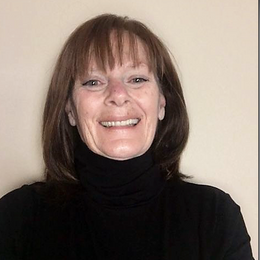Does Getting Older Mean You No Longer Matter?
How to remain engaged with the world as children leave and jobs end
Becoming less relevant is one aspect of aging that can catch us by surprise. It sneaks up on us. One day we have purpose and the next we feel it slipping away. We retire and our work colleagues get along just fine without us. We raise our kids and they grow up and no longer need us.

While we can deny the evidence for a while, eventually we’re left to acknowledge the reality. When we feel relevant, we’re connected. We make a difference — to ourselves and others. When we don't, we suspect that we just don’t matter as much anymore.
Relinquishing Who We Were
This sentiment usually occurs at the same time we begin to shed the roles we’ve played in our lives, according to University of Toronto associate professor of sociology, Markus Schafer. And these can be instrumental to our sense of relevance. “One of the challenges of aging is the shift in roles that helped define our identity,” he says.
Understandably, we may feel a little lost when these roles are gone, as Schafer says being an employee, spouse or parent all gives us meaning. “They take time and energy and an emotional commitment. When we lose those roles, there can be quite a hole, leaving us to wonder where our significance is now,” he says.
At the same time, finding ways to feel needed can be more of a challenge as we age.
In an article on age and advice that Schafer and Laura Upenieks published in the Social Psychology Quarterly last year, they found roles can give us the opportunity to influence others, but the circumstances that accompany aging can make that harder.
Giving advice implies that someone values our input and knowledge, Schafer says. But as we get older and leave the workforce, possibly lose our spouse or friends and are no longer parenting, we have fewer chances for this type of interaction.
Steps We Can Take to Maintain Our Relevance
We need to remember, however, it’s the sources of our relevance that shift, not our actual worth. Young kids depend on us for almost everything. Adult children don’t. That’s the circle of life. But it doesn’t mean we’re any less important to our kids.
There are still plenty of areas to be relevant to our families and communities. Finding occasions to connect with others fosters our sense of mattering, Schafer says, including not just receiving support, but also being able to offer it.
Marty Nemko, an educator and career adviser specializing in older professionals, says becoming a mentor is one way to leave a positive legacy. Focusing our efforts in domains where age is a plus is another. Using fundraising as an example, he says most people with serious dollars to give are older and they often tend to trust someone who is also in that age category.
For those concerned about remaining relevant in the workforce, consider the suggestions below from author and speaker Jacob Morgan, a futurist who is exploring how the workplace is changing. He is a Millennial (if you question what insight he could offer, please see suggestion No. 1 below). Morgan makes it a point to speak with older workers and executives, saying he has learned much from them. And his advice for remaining connected in other areas of our lives is sound as well. Morgan's suggestions:
- Team up with Millennials instead of seeing them as a threat. Both sides have something to teach and learn from each other.
- Don’t resist change just because it’s different. Be open to new ideas even if that means letting go of the way things have always been done.
- Keep up to date on learning new skills and the many ways now available to learn them.
- Establish your own personal branding and market yourself and your skills.
- Networking is still important, but it’s a two-way street. Don’t forget to ask how you can help those you meet.
- Think more like an entrepreneur, by being a perpetual learner and accountable for building your own business life. Don’t rely on an organization to take care of you.
Should We Embrace Our Irrelevancy?
Wanting to feel relevant is understandable. But refusing to let go when, and where, we should is pointless. Because there comes a time when we have to pass the torch. It doesn’t mean we don’t matter anymore, only that we accept that our roles have shifted.
When asked about his approach, Nemko says he tries to be as relevant as possible, spending time doing what he believes is the most helpful, but letting go of the outcome and not caring whether he’s viewed as irrelevant. “If someone thinks I am, maybe to them, I am. But if they’re wrong, it’s their loss,” says Nemko.
Maybe that’s the key. Instead of trying to hang on to what we no longer need, we should turn our energy in another direction. In his 2015 Harvard Business Review article, "Stop Worrying About How Much You Matter," Peter Bregman wrote that people who achieve success are masters at being relevant but his recommendation as we grow older is to become skilled at the exact opposite.
In other words, we need to master irrelevancy.
As Bregman pointed out, how we adjust to not being as important in the old roles may matter more in the long run than mattering. Because the truth is that at some time in our lives, we’re going to matter less in certain areas. That’s just part of growing older. But there’s freedom in being irrelevant. When we’re no longer tied so strongly to our roles, we may be able to take more risks, be more courageous or do things simply for the experience of doing them. In this way, we can be a more genuine version of who we really are.
We’re Always Relevant
Even if only for ourselves, we never really lose our relevance. Maybe no one’s looking for us to lead the next project, but our grandkids might think we hung the moon.
We’ll always have value to those who love and care about us. So instead of looking back to what we’ve lost, let’s look ahead to what we’ve gained. Because when we’re not being driven to prove to the world how much we still matter, we can let go and just engage with those who matter to us most.


